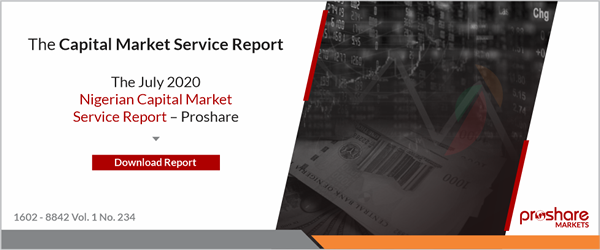Thursday, August 06, 2020 /12:17 PM / By The DMO / Header Image Credit: The China AfricaProject
The general public is encouraged to be guided by the facts in this PressRelease.
How Much Loan has Nigeria Taken from China?
As at March 31, 2020, the Total Borrowing by Nigeria from China wasUSD3.121 billion. This amount represents only 3.94% of Nigeria's Total PublicDebt of USD79.303 billion as at March 31, 2020. Similarly, in terms of externalsources of funds, Loans from China accounted for 11.28% of the External DebtStock of USD27.67 billion at the same date. These data, show that China is nota major source of funding for the Nigerian Government.
What are the Terms of the Loans from China?
The Total Borrowing from China of USD3.121 billion as at March 31, 2020,are concessional Loans with Interest Rates of 2.50% p.a., Tenor of Twenty (20)years and Grace Period (Moratorium) of Seven (7) years. The Terms and otherdetails of the Loan are available at here
These Terms are compliant with the provisions of Section 41 (1a) of theFiscal Responsibility Act, 2007. In addition, the low interest rate reduces theInterest Cost to Government while the long tenor enables the repayment of the principalsum of the Loans over many years. These two benefits, make the provisions forDebt Service in the Annual Budget lower than they would otherwise have been ifthe Loans were on commercial terms.
What Were the Loans Used For?
The USD3.121 billion Loans are project-tied Loans. The projects, (elevenin number as at March 31, 2020), include: Nigerian Railway ModernizationProject (Idu-Kaduna section), Abuja Light Rail Project, Nigerian Four AirportTerminals Expansion Project (Abuja, Kano, Lagos and Port Harcourt),Nigerian Railway Modernization Project (Lagos-Ibadan section) and Rehabilitationand Upgrading of Abuja - Keffi- Makurdi Road Project. See a Full List ofthe Projects at here
The impact of these Loans is not only evident but visible. For instance,the Idu - Kaduna Rail Line has become a major source of transportation betweenAbuja and Kaduna. Also, the new International Airport in Abuja, has improvedair transportation for the populace, while the Lagos - Ibadan rail line whencompleted, will ease traffic on the busy Lagos -Ibadan Expressway.
The projects also have the added benefits of job creation, not only bythemselves but through direct and indirect service providers, a number of whichare Small and Medium Enterprises. It is widely accepted that investment ininfrastructure is one of the most effective tools for countries to achieveeconomic growth and development. Using Loans from China to financeinfrastructure is thus in alignment with this position.
What Is the Process by which the Loans were Obtained?
The principal process and requirements for borrowing by the Governmentare expressly stated in the Debt Management Office Establishment (ETC) Act, 2003 (DMOAct) and the Fiscal Responsibility Act, 2007. Section 21 (1) of the DMO Act, "No External loan shall be approved or obtained by the Minister unless itsterms and conditions shall have been laid before the National Assembly andapproved by its resolution" and Section 41 (1a) of the FRA, "Government at alltiers shall only borrow for capital expenditure and human development, providedthat, such borrowing shall be on concessional terms with low interest rate andwith a reasonable long amortization period subject to the approval of theappropriate legislative body where necessary", are instructive in this regard.
For detailed information on the borrowing process and required approvalsplease go to "External and Domestic Borrowing Guidelines for FederalGovernment, State Government and the Federal Capital Territory and theirAgencies" here
To summarise, the Federal Ministry of Finance, Budget and NationalPlanning works with the MDAs under whose portfolio a proposed loan falls andalso with the DMO. Thereafter, the approval of the Federal Executive Council(FEC) is sought. It is only after the approval by FEC that His Excellencyrequests for the approval of the National Assembly (NASS) as required bySection 41 of the Fiscal responsibility Act, 2007. More importantly, it is onlyafter the approval of NASS that the Loans are taken and Nigeria begins todrawdown on the Loans. In summary, Borrowing is a joint activity between theExecutive (FEC) and the Legislative (NASS) Arms of Government.
How Rigorous is the Loan Documentation?
The Loan Agreements are reviewed by legal officers of the FederalMinistry of Justice and the Legal Opinion of the Honourable Attorney General ofthe Federation and Minister of Justice is obtained before any External LoanAgreement is signed.
Can China Take Possession of the Projects Financed by them if NigeriaDefaults in the Servicing of the Loan?
Nigeria explicitly provides for Debt Service on its External andDomestic Debt in its Annual Budgets. In effect, this means that Debt Service isrecognised and payment is planned for.
In addition, a number of the projects being (and to be) financed by theLoans are either revenue generating or have the potential to generate revenue.
Recent Related News on Subject - Thoughts on Nigeria and Chinese Loans - Reuben Abati, Aug 05, 2020
RelatedNews - Bonds & Fixed Income
1. Local Investors Turn Bears To Meet Up RegulatoryFunding Obligations
2. Special CRR Debit by Central Bank of Nigeria Gulps aLarger Chunk of the Interbank System Liquidity
3. Anchoria Fixed Income Monitor: Forex IlliquidityLingers
4. Average NT-Bills Yield Remains Unchanged at 1.8% asInvestors Partake in PMA
5. Heavy Demand at the NTB Auction as Rates DroppedSignificantly On 91 days and 182 days Bills
6. Heavy Market Liquidity Continues To Drive OMO RatesDown The Tide
7. Treasury Bill Auction Holds On Wednesday July 29th,2020
8. Interbank System Awash With Liquidity As Apex BankHolds Back On OMO Issuance
9. Anchoria Fixed Income Monitor: Booming Gold Priceamid Pandemic
10. Average NT-Bills Yield Declines to 1.8%; PMA Holdsthis Wednesday
11. NOVA Merchant Bank's Debut N10bn Bond Oversubscribedby 300%
12. The DMO's Latest Good Effort
13. DMO Laughs To The Bank At FGN Bond Auction, Raising30-Year Debt at 9.95%
14. Summary of FGN Bond Auction Results For July 2020
15. PMA Records Strong Demand as Average NT-Bills YieldDeclines to 1.9%; Bond PMA Holds this Wednesday
Related News - Fiscal Policy
16. Addendum tothe 2020 - 2022 MTEF and Fiscal Strategy Paper
17. LCCI ReportAffirms Need for Fiscal Authorities to Act
18. Framework forthe Management of COVID-19 Funds in Nigeria under the Treasury Single Account
19. COVID-19:Federal Government Exempts Medical Supplies from VAT and Import Duty
20. Stimulant isNecessary but not Sufficient - FDC
21. FiscalPosition: Still Critical but Temporary Panacea in Sight
22. Pick and Mixin Nigeria's Response to the COVID-19 Virus - FBNQuest
23. FG Adds toArmory for COVID-19 Showdown
24. COVID-19:Federal Government of Nigeria Announces Fiscal Stimulus Measures
25. Fiscal andMonetary Responses to COVID-19 Menace: Racing Against Time
26. FG LaunchesFinancial Transparency Policy Portal
27. TreasurySingle Account - The Puerto Rican Government Earned $49m in Interest Fiscal YTD
28. FriedrichHayek and The Price System: The Future Of Classical Liberalism and The FreeMarket
 Lagos, NG • GMT +1
Lagos, NG • GMT +1











 3299 views
3299 views












 Sponsored Ad
Sponsored Ad
 Advertise with Us
Advertise with Us









